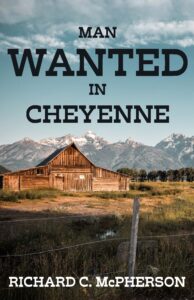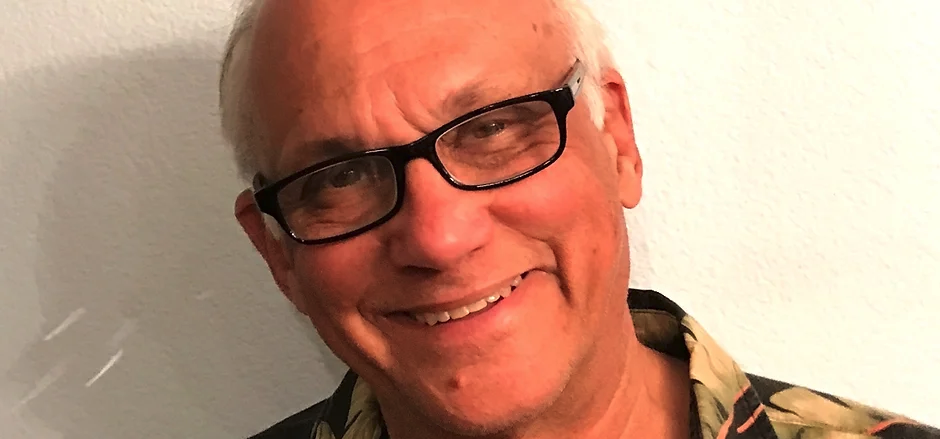A conversation with Atascadero author Richard C. McPherson can quickly turn into a useful primer for anyone considering the arduous path to publication.
 McPherson knows the journey well, having been a professional storyteller of one form or another throughout his career. Now 76, the former digital strategist has made the leap from short fiction to the novel with the release of Man Wanted in Cheyenne.
McPherson knows the journey well, having been a professional storyteller of one form or another throughout his career. Now 76, the former digital strategist has made the leap from short fiction to the novel with the release of Man Wanted in Cheyenne.
McPherson first honed his storytelling skills in the nonprofit world, helping a wide range of clients including public broadcasting stations, women’s rights organizations, and the New York Public Library. He also taught digital communications at UCLA, New York University, and Columbia, while conducting workshops around the world.
But after relocating to the Central Coast with his wife Heidi, McPherson decided to tackle a different form of storytelling. He started by taking classes through the Santa Barbara Writers Conference and through the writing program at Stanford. His initial focus was the short story.
“I started writing short fiction to experiment with different themes—murder mystery to romance to satire,” McPherson says. “I wanted to try and see what it was like to write anything at all.”
He must be a quick study. McPherson’s first piece, centered around a modern-day cowboy named Jake, was immediately accepted by two publishers. More stories followed, typically with about three being published each year. But the character of Jake had struck a chord with some readers and they wanted to know more about this cowboy hero.
“People began asking questions about Jake and his background, which led me to ask questions,” McPherson says. “I started writing short stories about Jake and then I realized I had enough for a novel.”
He had been warned at Stanford that it typically took three to four years to complete a novel. McPherson initially scoffed at the prediction, but looking back, that’s exactly how long it took to finish Man Wanted in Cheyenne.
What happened? McPherson says it’s about the creative process. “I didn’t realize that a lot of this is telling yourself the story, sitting back in your chair, letting it sort of sit there for a while, ripping it apart, and sometimes putting it aside for two or three months and coming back and saying, ‘my god, how could I have written this?’”
The “this” for McPherson involves a story of finding personal peace in a troubled world, navigating hurdles and obstacles and life’s disappointments, all personified in the character of Jake, a cowboy seeking refuge from pain and tragic loss by working on a modern Nevada ranch.
Jake’s serenity is challenged with the arrival of a Hollywood film crew, led by mega-star Robert Lange. The disruption leads to an unlikely friendship between Hollywood star and grizzled cowboy, with Jake being given the chance to reimagine a dream he had buried in his past. But then come the disasters worthy of Job, both natural and man-made, that force Jake to reassess his life and search anew for peace.
McPherson’s task, the writer says, was to make the journey as difficult as possible for his main character. “I was once given some excellent advice by an editor. He said to give Jake as many life boats as possible—and then sink them one by one until nothing is left.”
When asked what advice he would give beginning writers, McPherson stresses the importance of patience: writing takes time. “The first draft is really about telling yourself the story and then you turn around to figure out how you tell that story to someone else.”
He also warns that writers must be willing to accept criticism and rejection, to be ready for people to say, “I didn’t like it.” Short fiction must be even shorter now, typically under 3,000 words—often even less. Finally, McPherson is a fan of the online writing community Critique Circle, and believes writers in all genres can find useful information there.
McPherson is currently back to short fiction (“I like the variety”) and exploring themes of self-discovery. He hopes to have a collection of short stories ready for publication by the end of the year.
Meanwhile, he balances his writing with as much reading as possible. “I do a lot of reading because in order to write a novel, you have to read a lot,” McPherson says.
“I read some novels and think, ‘I could write something that good.’ Other novels I read and I think, ‘How do I have the nerve to put a word on the page? They are so good.’”
Man Wanted in Cheyenne is published by Unleash Press.
